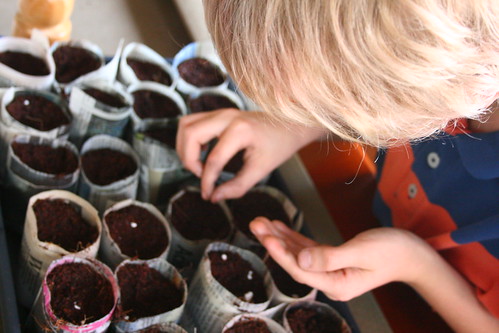Being
aggressive may be a good thing in sports, but aggressive behavior is not
something we want to encourage in our children. This behavior includes hitting,
biting, and screaming are some examples of aggressive behavior we want to
control. But how do we do this?! Kids can get a little crazy, right?
The
American Academy of
Pedriatics posted some great information
on preventing and controling aggressive behavior in your children. It says,
"the best way to prevent aggressive behavior is to give your child a
stabel, secure home life with firm, loving discipline and full-time supervision
during the toddler and preschool years." This can be hard to do! We aren't
perfect and we will probably never have that perfect situation to be able to
raise our children perfectly,
but there are little steps we
can take to help ourselves and our children be successful!
1.
Set Rules
First
of all, rules and consequences should be agreed on by everyone who cares for
the children. Also, when the rules are broken, the consequence should come
immediately so the child knows exactly what they did wrong and why they are
being punished. This will help teach them what is wrong and what is
right.
Discipline
should continue on an ongoing basis both when the child behaves and misbehaves.
Smiles and praise when your child is being good will encourage them to continue
their positive and appropriate behaviors. It is very effective to reinforce
positive behaviors! Also remember that children do not have much
self-control. Children need to be taught how to react in different situations,
which leads us to the next step!
2. Teach
your Child How to Express Emotions
Teach
your child to say “no” in a firm tone of voice, to turn his back, or to find
compromises instead of fighting and acting out with his body. Praise him on his
appropriate behavior and help explain to him how “grown-up” he is acting
whenever he doesn't choose hitting, kicking, or biting as his answer. And
always reinforce and praise his behavior when he is demonstrating kindness and
gentleness.
Teach
your child that setting problems with words will get better results than
violence would. Your own behavior and example is also very important and part
of the next step!
3.
Watch your Own Behavior
One of
the best ways to teach your children appropriate behavior is to control your
own temper. If you express your anger in quiet, peaceful ways, he probably will
follow your example. This doesn’t mean you can’t discipline your child!
Discipline is necessary because children need to learn when they are wrong so
they can learn to take responsibility for their actions and accept the
consequences.
There
you have it! Three steps to help prevent aggressive behavior in your children!
Do you think these will help? What steps do you take to help control your
children when they get angry?














